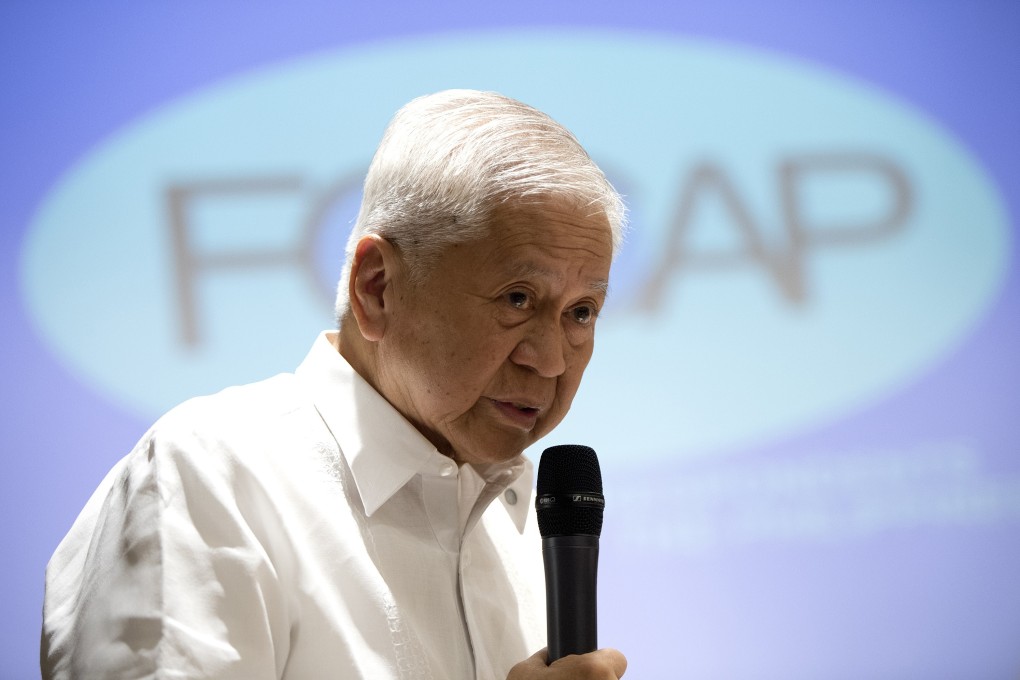Advertisement
Former Philippine diplomat Albert del Rosario defends using diplomatic passport to enter Hong Kong after Duterte criticism
- The former foreign secretary was deported over his ‘well-known anti-China attitudes’, according to a Chinese scholar
- Nevertheless, experts say the incident is unlikely to affect relations between Manila and Beijing or Hong Kong
Reading Time:4 minutes
Why you can trust SCMP

Albert del Rosario, the Philippines’ former foreign secretary turned away from Hong Kong last week while using a diplomatic passport, has defended his use of it and says he was singled out because he was a signatory to a “crimes against humanity” international lawsuit against China and its leaders.
“It’s clear it was in retaliation for that [legal]action,” he told a morning news programme in the Philippines on Thursday.
In March, Del Rosario and former ombudsman Conchita Carpio-Morales sued Chinese President Xi Jinping and other Chinese officials at the International Criminal Court for “atrocious actions in the South China Sea and within Philippine territory”.
Advertisement
According to Dr Dai Fan, vice dean of Guangzhou-based Jinan University’s school of international studies, del Rosario’s ejection was to his knowledge the first time a high-ranking foreign official had been treated in this manner.
“I haven’t heard of an incident like this before, but I think it may not be the last,” he said, adding that “we should understand this under the background of present United States-China relations”.
Advertisement
Advertisement
Select Voice
Select Speed
1.00x